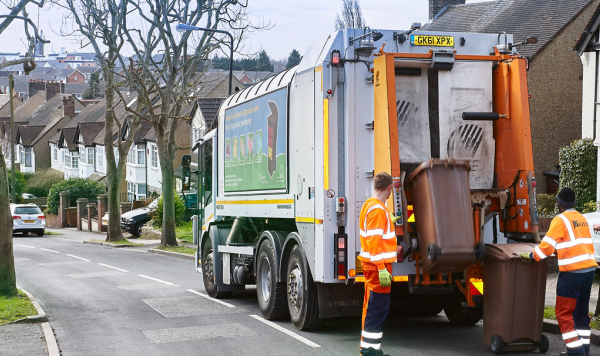Response
Dear Zack,
I would like to thank the London Assembly Environment Committee for looking again at the incredibly important issue of our city’s waste. As chair of the North London Waste Authority (NLWA), which is responsible for the disposal of waste for two million residents, I completely agree that we need to reduce waste and increase recycling across London. Londoners working together is key to protecting our environment and tackling the climate emergency. This is why I welcome your latest report ‘Too Good to Waste’ on this matter which recognises the complex array of organisations and authorities that must all play a part in our shared mission.
As the UK’s second-largest waste authority, we manage waste transportation and disposal on behalf of seven London boroughs (we are not a collection authority, as suggested on page 7 of your report). We run one of the most extensive and far-reaching waste prevention programmes in the country to encourage residents to reduce waste and recycle more. We are pleased that your report highlights waste reduction and adopting a circular economy to help tackle the climate emergency which completely aligns with our waste management strategy. We hope that we can work with you and your committee members to highlight further the importance of the structural and behavioural changes needed across London.
I am writing to seek clarification and your thoughts on a number of issues in the report.
Recommendation 5: “Having made it clear that he doesn’t support new incineration capacity, the Mayor should support policies that reduce waste overall and thus reduce the amount of waste that is burned in incinerators in London. In order that the impacts of incineration can be minimised, use of incineration should be avoided, with the circular economy and wider changes in consumption adopted in London to reduce waste production.”
NLWA officers have been assured by GLA officers that this recommendation refers to the Waste Hierarchy and the need to reduce waste, then increase recycling, then use energy recovery, and then landfill as a last resort. This is the approach supported by NLWA and is reflected in our plans for the North London Heat and Power Project which will enable an increase in recycling and will then recover energy from residual waste to generate low-carbon energy. As you know, avoiding landfill and the catastrophic levels of methane it releases is an essential step in combating the climate emergency. Furthermore, the construction and operation of the North London Heat and Power Project (NLHPP) is taken into account in the Mayor’s Environment Strategy, meaning that its operation is in line with Mayoral policy.
However, the way the recommendation is currently worded could lead some people to believe that incineration should never take place. As set out above this would lead to increasing landfill which would be highly detrimental. I would welcome clarification on this point.
Page 18 of the report references the April 2020 study by Air Quality Consultants, about which we have previously raised major concerns: “in total, 15 deaths of London residents per year are calculated to be attributable to emissions of nitrogen oxides and particulate matter from the five EfW facilities.” The first section of the report accurately confirms the clear scientific consensus that modern facilities like ours pose an extremely small health risk. However, there’s a significant issue with the data used to forecast emissions of NOx and particulates from the North London Heat and Power Project, to the extent that it overestimates particulate emissions by around 400%. Even the highest concentrations of particulates from our facility will still be almost 1000 times lower than the World Health Organisation air quality limit. I’m sure you would agree such inaccuracies point to a hugely flawed methodology and a fundamentally flawed report. When the report was first published we had to draw public attention to these shocking inaccuracies in a correction to the media and on our website. I would urge you to reconsider the inclusion of this misleading study in your report.
I would like to thank your committee officers for their constructive engagement when approached by NLWA officers to discuss the above points in the report. I look forward to hearing from you and am happy to provide any additional information that you or the committee may require. Please note that we are copying this letter to the Chairs of London’s other waste authorities to which the content of your report is relevant to, including: East London Waste Authority, West London Waste Authority, Western Riverside Waste Authority and South London Waste Partnership.
We would also like to offer yourself and your committee members an opportunity to visit Edmonton EcoPark to see first-hand the significant progress we’ve made since, including London’s most significant investment in recycling facilities for a generation. Please let me know if you’d like to join a private tour and we can liaise with your team to find a suitable date and time? In the meantime, you would like to read any further information about the NLHPP please visit our website: northlondonheatandpower.london.
Yours sincerely,
|
Councillor Clyde Loakes Chair, North London Waste Authority |
 Hornsey Street Reuse and Recycling centre - REOPENING
Hornsey Street Reuse and Recycling centre - REOPENING

